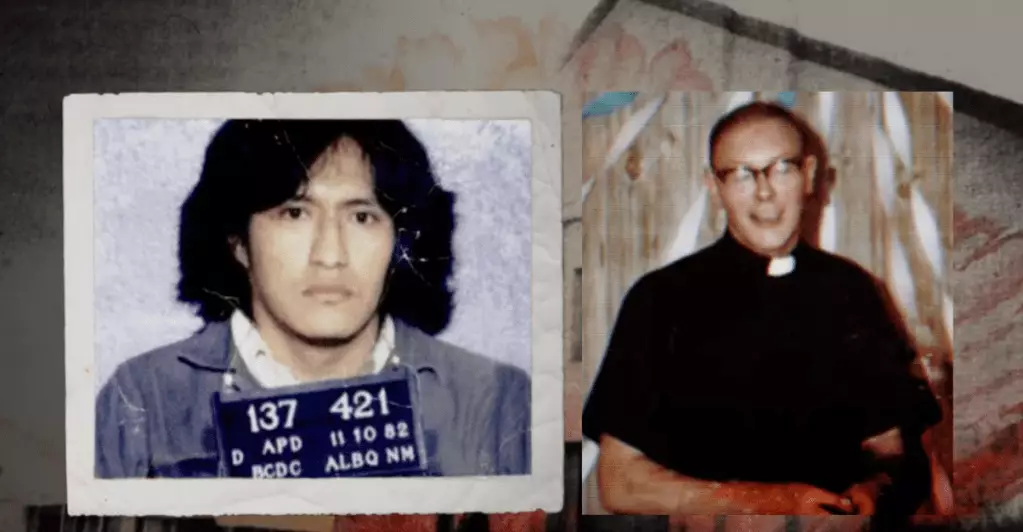The pursuit of justice often reveals the darkest corners of our legal system—areas where bias, discrimination, and neglect converge to create a grotesque circus of wrongful convictions. The case of James Harry Reyos, a closeted Apache man wrongfully convicted for the murder of Father Patrick Ryan in 1981, epitomizes such a tragedy. Not only does it expose the pervasive racism and homophobia embedded in the fabric of society, but it also illustrates how easily an innocent life can be derailed by systemic failures and damnable assumptions. Reyos, who was falsely accused despite having an alibi, represents a harrowing illustration of a society quick to cast blame on those who carry the weight of multiple marginalized identities.
The Repugnant Role of the Local Authorities
Deborah Esquenazi’s documentary, *Night in West Texas*, dives deep into this convoluted mess of a case, forcing viewers to confront the uncomfortable realities lurking beneath the surface of the American legal system. Initial investigations were tainted by the very biases that the police should have worked to eliminate. It’s distressing to consider that law enforcement officials in Odessa, Texas, knowingly targeted a convenient scapegoat rather than seeking justice for Father Ryan. The idea that Reyos became a “throwdown character” in the eyes of the authorities—dehumanized, vilified, all for being a closeted Native American—exemplifies the grotesque lengths to which a flawed system will go to avoid accountability and to appease the public’s need for resolution.
The smallest acts of humanity were swept aside. Instead of pursuing a thorough investigation that could have brought forth evidence of Reyos’ innocence, authorities chose to ignore solid alibi witnesses and focus solely on his identity as a man forced to live in the shadows. Recklessly ensnared within a web of prejudice, Reyos’ existence became a cautionary tale—one that begs the question: how frequently are innocent lives shattered in the name of expediency?
The Resurgence of Hope through Reexamination
Fast forward to a pivotal moment in 2017, when Mike Gerke stepped in as the police chief in Odessa. While the wheels of justice may turn excruciatingly slow, Gerke’s decision to reopen Reyos’ case ignited hope in what had become an increasingly bleak narrative. It’s surreal to fathom that latent bloody fingerprints had gone unexamined for decades, representing not just a massive oversight, but an indictment of a system that failed Reyos from the outset. This case serves as a painful reminder of how critical technology can be in dismantling the barricades formed by past injustices.
The surge of interest in Reyos’ case—sparked by a crime podcast—highlights society’s changing perspectives. The very act of listening and questioning signifies a cultural awakening, showing how media can transform narratives and liberate the oppressed. The Innocence Project of Texas, led by passionate advocates like Allison Clayton and her team, showcases the grassroots movements that challenge the status quo. Their unwavering commitment to seeking exoneration for Reyos embodies a growing realization that justice is a collective responsibility, demanding not mere sympathy but active engagement.
More Than Just a Case—A Community’s Stand
As *Night in West Texas* reveals the compelling story of Reyos’ fight for justice, it simultaneously sheds light on the community that rallied around him. This emerging solidarity within marginalized communities mirrors a broader shift toward collective activism. Viewers cannot help but feel their hearts swell with a sense of unity and purpose as they witness how individuals who have faced their own struggles come together for a common cause. The film meticulously captures the essence of resilience, demonstrating that true justice is often birthed from the courage and tenacity of the human spirit, even in the face of overwhelming adversity.
This portrayal of empathy and collective activism underscores a stark contrast to the failures that led to Reyos’ wrongful conviction. The tightly knit support network that forms around Reyos is a poignant reminder that people are capable of extraordinary strength when they refuse to stand idly by in the face of injustice. The film evokes not only outrage but also a sense of responsibility within viewers—urging them to reflect on their roles in combating systemic oppression.
The story of James Harry Reyos is not merely about one man’s fight against a flawed system; it is an urgent call for re-examination of the values guiding our judicial processes. As we reflect on this harrowing tale, we must confront the uncomfortable truths that persist within our society, questioning whether any individual should ever have to endure such an ordeal simply because they exist at the crossroads of multiple marginalized identities.



Leave a Reply